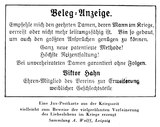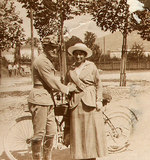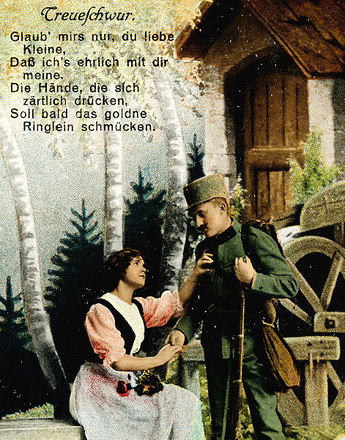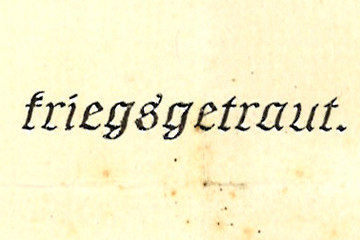-
Story Sexuality during the War
Separation of husbands and wives and sexual mobility in the First World War
-

“Engagement advertisement”, joke postcard
Copyright: privater Leihgeber
-

Leave-taking at Görz [Gorizia] station, Leopold Wolf war photo album, 1914
Copyright: Sammlung Frauennachlässe, Institut für Geschichte der Universität Wien/Fotografie: Angelika Spangel
Partner: Sammlung Frauennachlässe, Institut für Geschichte der Universität Wien
One of the products of the First World War was increased mobility. Millions of men were sent to the front and separated from their wives and families, something that had major consequences for partnerships and sexual behaviour.
Although estimates of the number of conscripted (married) men diverge, it is likely that by 1918 some 6.5 million men from Austria-Hungary and 11 million from the German Empire had been sent to war. More than a third were married and thus separated from their families.
This produced a gender imbalance at home, leading to a marked reduction in marriages and births. The separation meant that sexual relations between married couples were interrupted for months or even years. One women from the Allgäu describes in her memoirs how this separation became increasingly accepted as normal during the course of the war:
“We got used to the deprivation. We accepted that the men were away and that the women had to toil and look after the children. We could only write and send packages to our husbands.”
In spite of the separation, it may be assumed that sexual contacts during the war remained frequent, increasingly in extramarital relationships – between soldiers and the female population of the occupied countries, between troops and prostitutes in brothels behind the lines, and between the women at home and foreign workers and prisoners of war. The structural changes resulted in increased sexual mobility, new forms of sexual relations, and changing morality.
One consequence of this was that the state took an increased interest in the sexual behaviour of the troops and the civilian population. Sexuality was already being discussed increasingly in public at the start of the century. The war acted as a catalyst in this regard and led to a greater politicisation of sex. The rapid spread of venereal diseases was a threat to the combat capability of the troops, and methods of preventing them were thus in the national interest. Suggested solutions included the regulation of prostitution, encouragement of abstinence and the use of contraceptives and prophylactic aids. A further problem given the highest priority in all of the belligerent states was increasing the dwindling birth rate as a way of strengthening the nation.
Translation: Nick Somers
Daniel, Ute: Arbeiterfrauen in der Kriegsgesellschaft. Beruf, Familie und Politik im Ersten Weltkrieg, Göttingen 1989
Daniel, Ute: Frauen, in: Hirschfeld, Gerhard/Krumeich, Gerd/Renz, Irina (Hrsg.): Enzyklopädie Erster Weltkrieg, Paderborn et al. 2009, 116-134
Herzog, Dagmar: Sexuality in Europe. A Twentieth-Century History, Cambridge et al. 2011
Sauerteig, Lutz: Sex, Medicine and Morality during the First World War, in: Cooter, Roger/Harrison, Mark/Sturdy, Steve (Hrsg.): War, Medicine and Modernity, Stroud 1998, 167-188
Quotes:
“We got used to the deprivation ...": Briefauszug vom März 1917: HStA/Kr. I. Bayerisches AK München 1979, quoted from: Daniel, Ute: Arbeiterfrauen in der Kriegsgesellschaft. Beruf, Familie und Politik im Ersten Weltkrieg, Göttingen 1989, 128 (Translation)
-
Chapters
- Separation of husbands and wives and sexual mobility in the First World War
- Dwindling birth rates during the First World War
- "Mobilisation of the cradle"
- State control and social stigma
- Abstinence and satisfaction of needs
- Combatting venereal diseases in the Austro-Hungarian army
- “Resist from the outset”
- Sexual relief for soldiers
- Prevention or punishment
- Sexual assault in the First World War
- Sexual violence in Allied war propaganda





